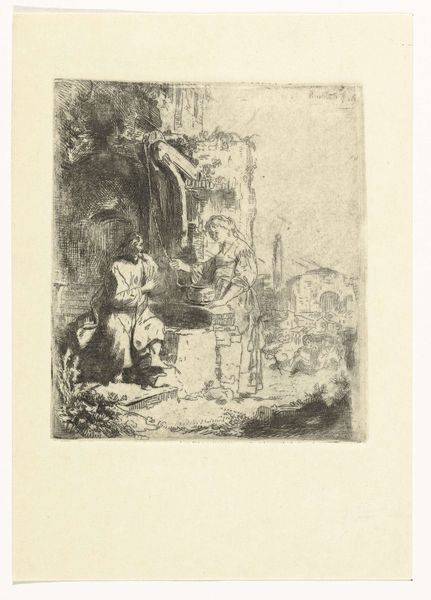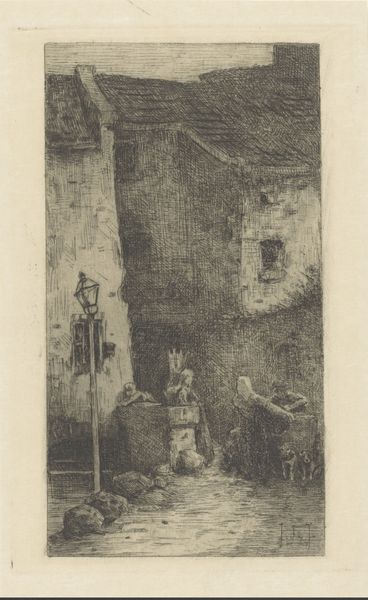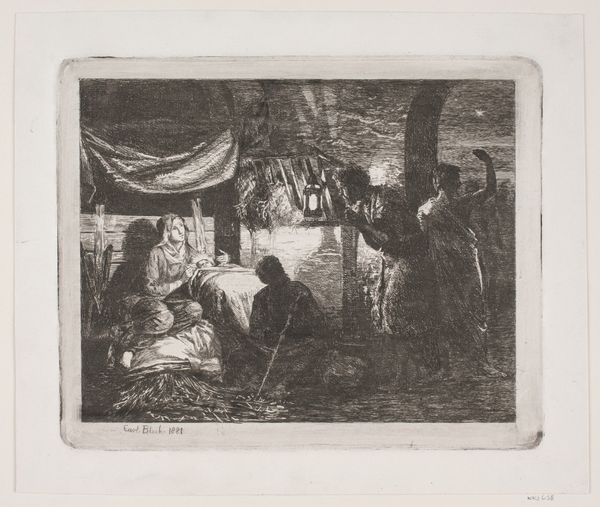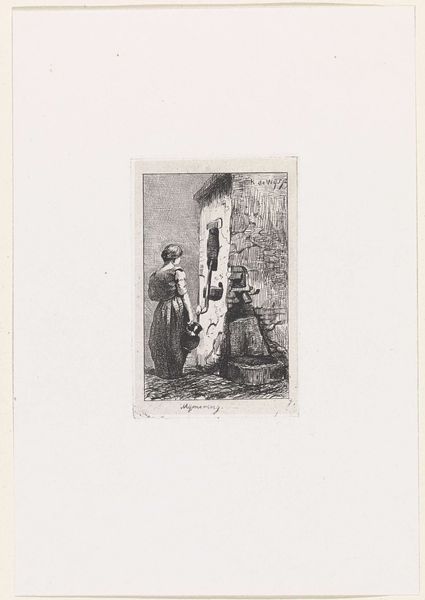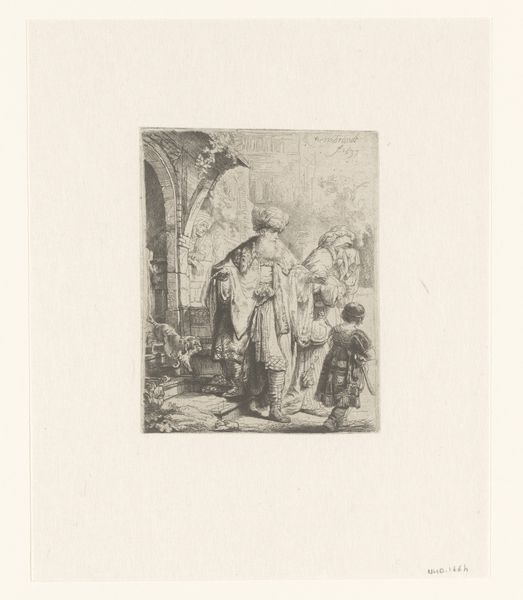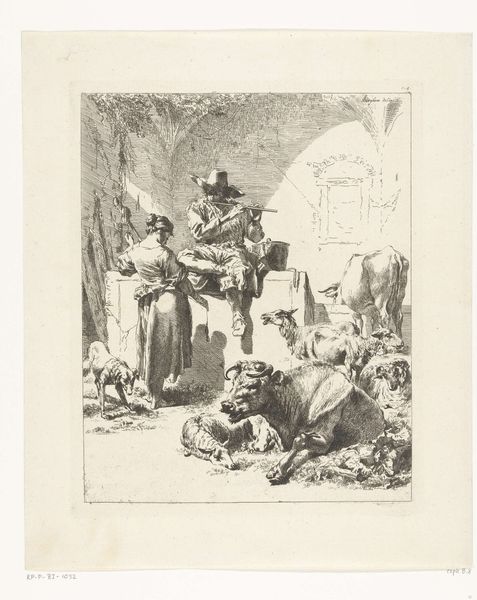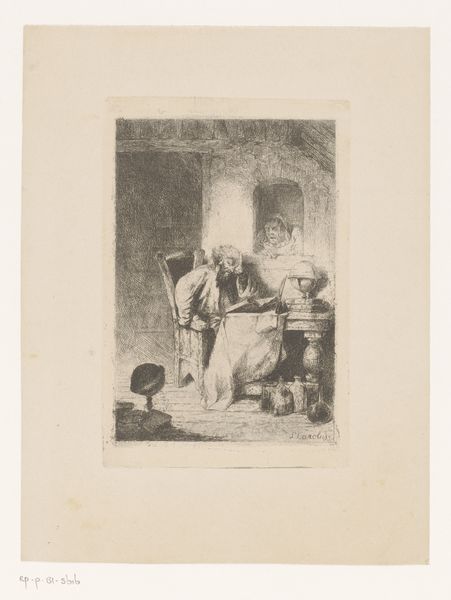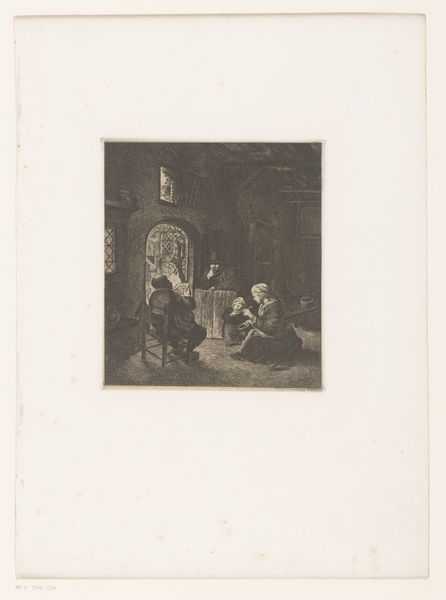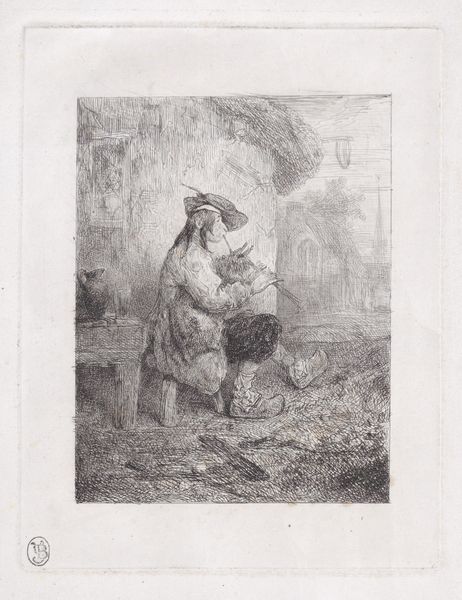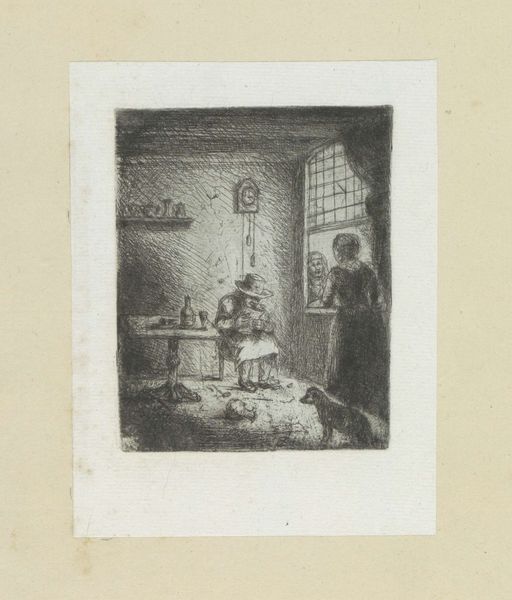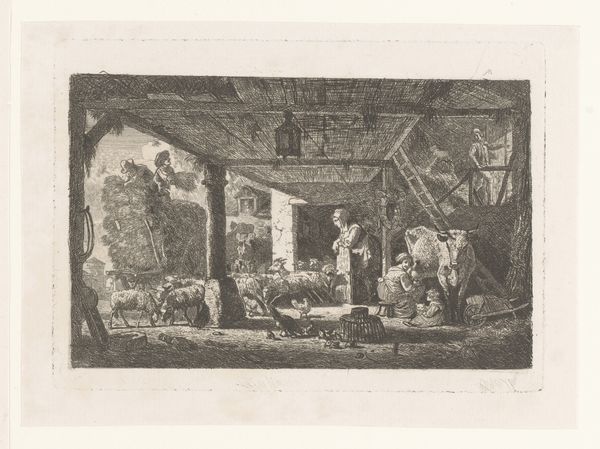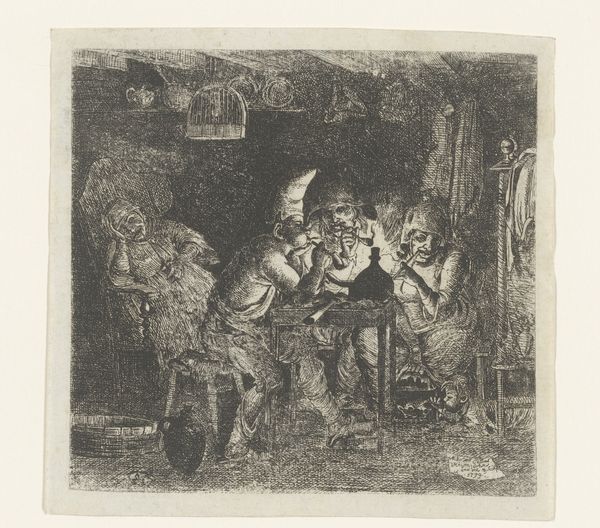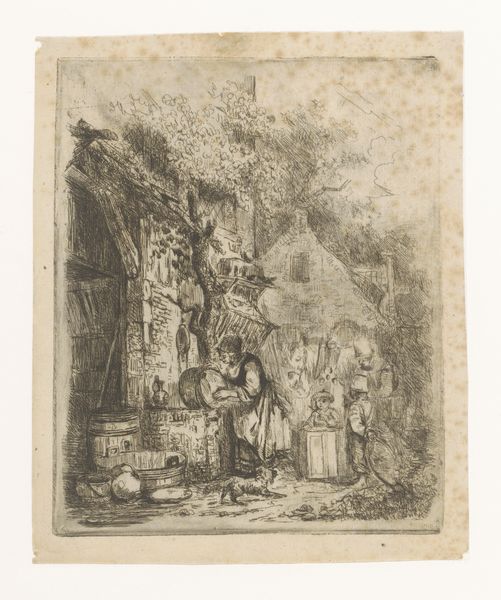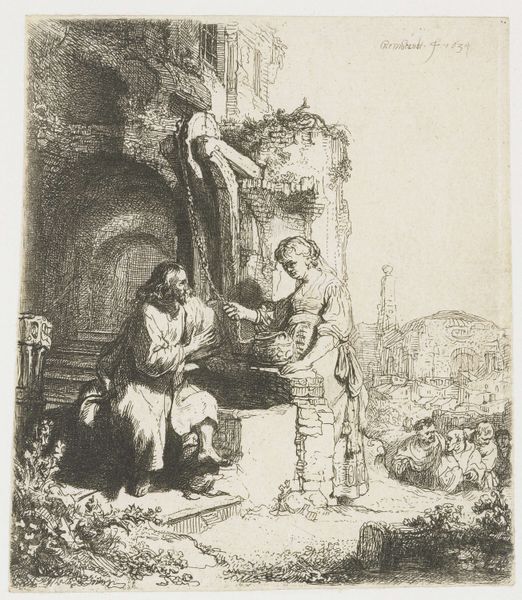
Dimensions: height 121 mm, width 106 mm
Copyright: Rijks Museum: Open Domain
Rembrandt van Rijn etched "Christ and the Woman of Samaria Among Ruins," capturing a biblical encounter amidst crumbling structures. The well, central to the scene, is more than a water source; it's an ancient symbol of life and revelation. The act of offering water, a gesture laden with meaning, echoes across cultures. In ancient Greece, a similar offering signified hospitality, a sacred duty. Yet, here, Christ reverses roles, requesting water from the Samaritan woman, challenging societal norms. This reversal recalls ancient sacrificial rituals, where the unexpected offering held the most power. Consider the ruins surrounding them – remnants of a bygone era. These aren't merely aesthetic details; they symbolize the transient nature of earthly empires. The subconscious pull of such images lies in our collective memory of collapsed civilizations. The motif resurfaces through time, each instance echoing our yearning for meaning in the face of decay, proving that history, like water, flows in cycles, constantly renewing and reshaping itself.
Comments
No comments
Be the first to comment and join the conversation on the ultimate creative platform.
